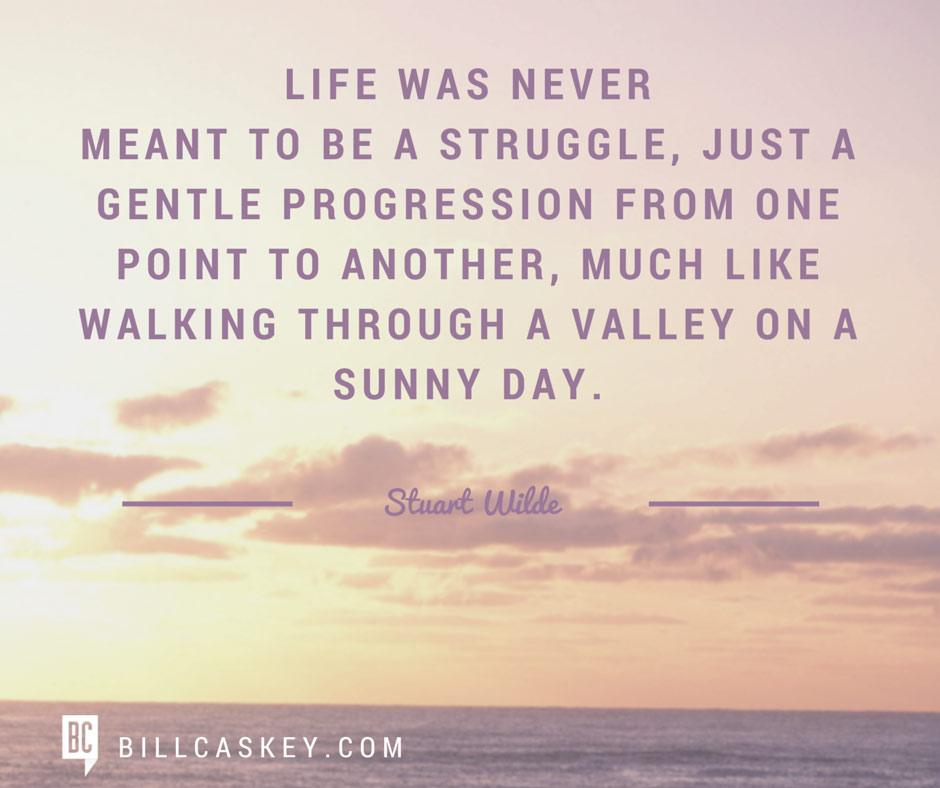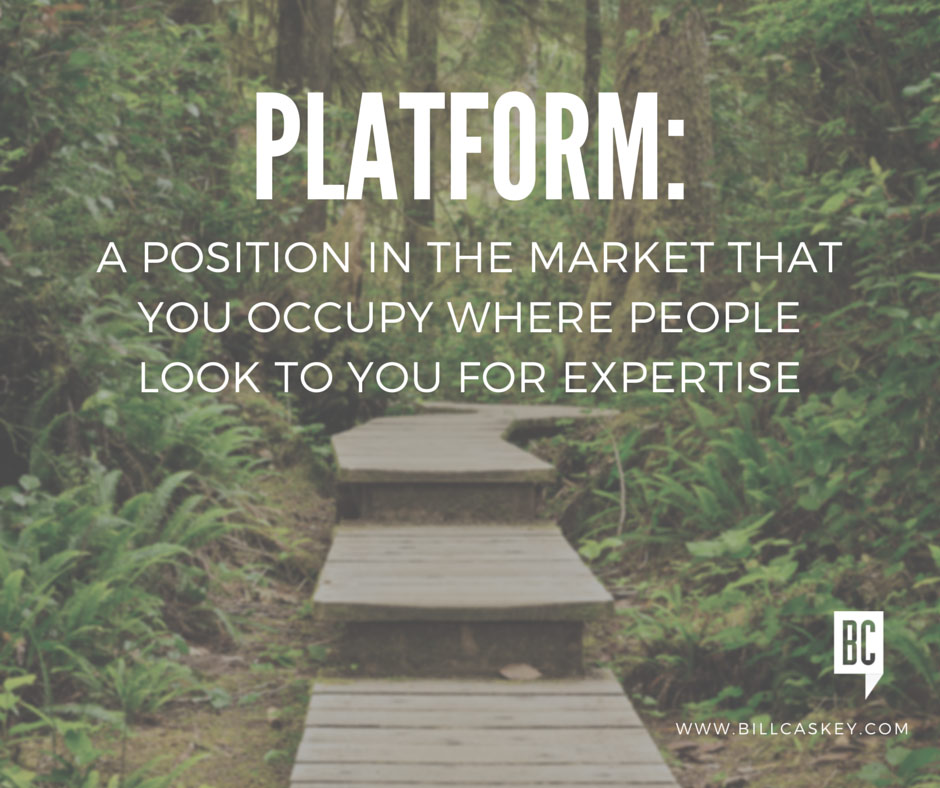 One of my favorite books of all time was a 60-pager written by Stuart Wilde called, “Life Was Never Meant to be a Struggle.”
One of my favorite books of all time was a 60-pager written by Stuart Wilde called, “Life Was Never Meant to be a Struggle.”
In this book, he addresses how life demands effort, but not struggle. As he defines it, “struggle is effort, laced with negative emotion.”
In sales, we struggle a lot, don’t we? Struggle to get an appointment. Struggle to get to the right person. Struggle to position our product in the best possible light. Struggle to close the sale.
But, should we feel ‘struggle?’ I don’t think so.

In markets that are abundant, you should be on the lookout for “ideal fit” between your customer’s pain and aspirations, and your solution. If there is no ideal fit, then you must move on.
Traditionalists among you will say, “No, Bill, you must be persistent and press hard to make the sale.”
Really? Is that really what you think? Sounds like struggle to me.
Instead….
1. Be clear about the value you bring. How can you determine an “ideal fit” if you aren’t quite sure of the value you bring and what problems it will solve for the customer? Bullet-list the elements of your value so you can become clearer about it.
Another bulleted list you should make is the characterization of your ideal client. Do they have money? Are they interested in growth? Do they look outside for help? Do they respect your ideas?
These two lists should be the filters that you shoot prospects through to see if you should spend one more minute with them.
2. Align behavior with purpose. If you struggle in a component of the sales process, say lead generation, then you aren’t looking at it correctly. I had a mentor who said, “If you’re feeling pressure, you’re doing something wrong.” This is why I say, “align with purpose.” This means to state what your purpose is in your profession.
If it’s to make a lot of money for yourself, then you aren’t operating from a place of High Intent. Every thing that happens to you in the sales process will be seen as a threat to your core purpose.
But if your purpose is to be a hero to your target audience…or to serve them exquisitely…or to solve the biggest problems they have, then you are “on purpose” and in sync with what they want. You both want the same ting.
And when you are on purpose, prospecting behavior will never be a struggle.
3. Take the pressure off early. Tell the customer upfront that it’s OK if this is not a fit. Why would you have any other point of view than that? If it’s not a fit in his/her eyes, are you going to continue to hang around? No, of course not.
But by saying it…out loud…you separate yourself from the hundreds of amateurs who have come before you.
When you apply pressure, you are not in-disposable. Your are DISPOSABLE.And if you are disposable (or feel like you are), you will struggle in the profession.
Let me know how you do at implementing these three simple ideas!








